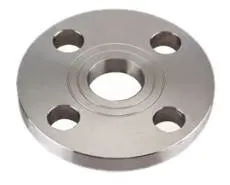-
Cangzhou Yulong Steel Co., Ltd.
-
Phone:
+86 13303177267 -
Email:
admin@ylsteelfittings.com

Nov . 19, 2024 12:44 Back to list
Understanding the Functionality of Swage Concentric Reducers in Piping Systems
Understanding Swage Concentric Reducers A Comprehensive Overview
In the world of piping and plumbing systems, efficient fluid transportation is crucial for various applications, from industrial plants to residential installations. One important component that plays a significant role in this intricate system is the swage concentric reducer. This device is essential for managing the flow of liquids and gases, enabling smooth transitions between different pipe diameters while maintaining the system’s integrity and efficiency.
What is a Swage Concentric Reducer?
A swage concentric reducer, commonly referred to simply as a concentric reducer, is a type of fitting used in piping systems. Its primary function is to connect two pipes of different diameters, allowing for a smooth transition from a larger diameter pipe to a smaller one. Unlike eccentric reducers, which create a step change in elevation, concentric reducers maintain the same centerline, ensuring that the flow remains centered within the pipeline. This feature minimizes turbulence and pressure drop, making them ideal for various applications.
Design and Construction
Swage concentric reducers are typically constructed from various materials, including stainless steel, carbon steel, and PVC, depending on the intended application and environmental conditions. The design generally features a cone-shaped geometry that tapers down from the larger diameter to the smaller diameter. This gradual change in size allows for a more efficient flow of fluids, reducing the risk of obstruction and stagnation.
The manufacturing process involves techniques such as forging, casting, or machining, which are chosen based on the required specifications and the material properties. Precision is critical in the construction of these reducers, as even slight deviations in dimensions can lead to performance issues within the piping system.
Applications
Swage concentric reducers are widely used across various industries, including oil and gas, petrochemical, wastewater management, and food processing. They are particularly useful in situations where pipes need to connect with different flow rates and require a streamlined transition to avoid backpressure or flow disruption.
swage concentric reducer

In HVAC systems, for example, these reducers help manage airflow by connecting different duct sizes, ensuring that air circulation remains even and efficient. In water treatment plants, they are employed to facilitate the flow of water through various stages of treatment, from initial collection to final distribution.
Advantages
1. Reduced Turbulence By maintaining concentricity, these reducers minimize turbulence and the associated pressure losses in the fluid flow, improving overall system efficiency.
2. Space Saving Swage concentric reducers take up less space compared to other reducer types, making them an ideal choice for installations with limited room.
3. Versatility Available in various sizes and materials, these reducers can be used in numerous applications, making them a versatile solution for fluid conveyance.
4. Ease of Installation Their design generally allows for straightforward installation, whether through welding or threaded connections, ensuring that maintenance and adjustments can be easily conducted.
Conclusion
In summary, swage concentric reducers are vital components in numerous piping systems, enabling efficient fluid transport through their ability to connect pipes of different diameters seamlessly. Their unique design minimizes turbulence, reduces pressure loss, and optimizes flow rates, making them invaluable in various industrial and commercial applications. As industries continue to evolve and innovate, the importance of reliable and efficient components like concentric reducers will undoubtedly remain a key focus in the pursuit of enhancing system performance and operational efficiency.
Latest news
-
ANSI 150P SS304 SO FLANGE
NewsFeb.14,2025
-
ASTM A333GR6 STEEL PIPE
NewsJan.20,2025
-
ANSI B16.5 WELDING NECK FLANGE
NewsJan.15,2026
-
ANSI B16.5 SLIP-ON FLANGE
NewsApr.19,2024
-
DIN86044 PLATE FLANGE
NewsApr.19,2024
-
DIN2527 BLIND FLANGE
NewsApr.12,2024
-
JIS B2311 Butt-Welding Fittings LR/SR 45°/90° /180°Seamless/Weld
NewsApr.23,2024
-
DIN2605-2617 Butt-Welding Fittings LR/SR 45°/90°/180° Seamless/Weld
NewsApr.23,2024











